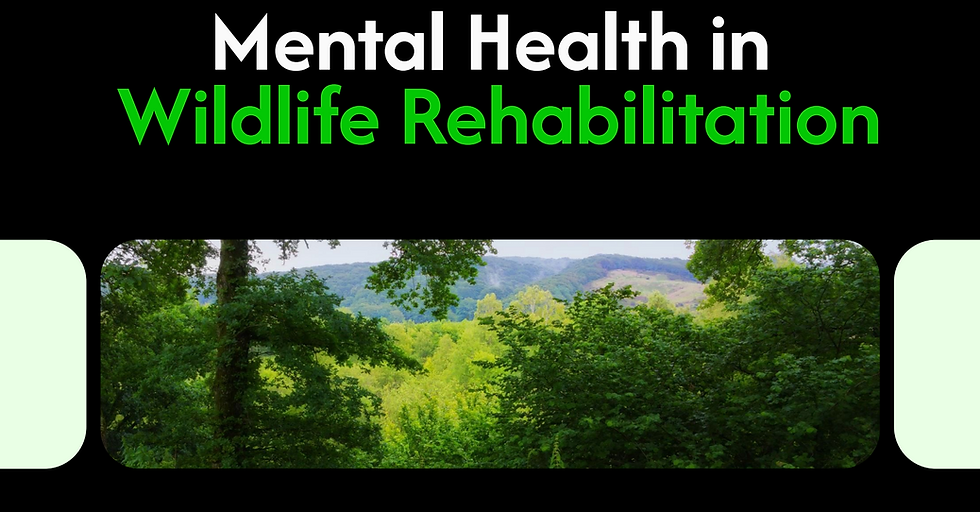The role of volunteers and community involvement in wild bird rehabilitation
- May 17, 2023
- 2 min read

Wild birds are often injured or orphaned due to various human activities, such as habitat loss, collisions with windows or vehicles, poisoning, hunting, or illegal trapping. These birds need specialised care and treatment to recover and return to the wild. However, many wildlife rehabilitation centres are understaffed and underfunded and rely heavily on volunteers and community support to carry out their mission.
Volunteers play a vital role in wild bird rehabilitation, providing essential services such as feeding, cleaning, transporting, and monitoring the birds. They also help with fundraising, education, outreach, and advocacy. Volunteers can gain valuable skills and experience in wildlife care, veterinary medicine, ecology, and conservation. They can also enjoy the rewarding feeling of helping animals in need and making a positive difference for the environment.
Community involvement is also crucial for wild bird rehabilitation, as it helps raise awareness and support for the cause. Community members can help by taking or reporting injured or orphaned birds to the nearest wildlife centre, donating money or supplies, adopting or sponsoring a bird, or joining a local birdwatching group to learn more about birds, their habitats and their needs. They can also help by reducing the threats to wild birds in their backyard, such as keeping cats indoors, removing bird feeders during migration season, avoiding pesticides and rodenticides, and making windows more visible.
Wild bird rehabilitation is a challenging but essential work that benefits the individual birds, the ecosystem, and society. By volunteering or getting involved in the community, anyone can contribute to this noble cause and help protect our feathered friends.
WReNNZ is the national organisation representing wild bird rehabilitators across New Zealand. While acknowledging that rehabbers and volunteers contribute significantly to preserving New Zealand's bird life, we also believe that it is time that rehabbers got Government and Local Government support to enable this vital work to continue. The heavy burden on a relatively small group of rehabilitators and volunteers to save wildlife can be overbearing, and fundamentally the responsibility to protect wildlife and provide animal welfare lies with the Government Agencies legislated to fulfil this task. Without the support of these agencies for rehabbers, we will continue to see a steady decline in rehabilitation centres across New Zealand.
If you're interested in getting involved in wild bird rehabilitation, we encourage you to contact your local wildlife rehabilitation centre or bird rescue organisation to find out how you can help. Your help will make a difference!
‘Alone, we can do so little. Together, we can do so much" – Helen Keller
This article was written by
Brian Robertson
WReNNZ Chairperson






Comments